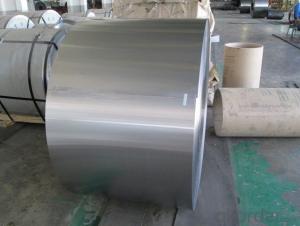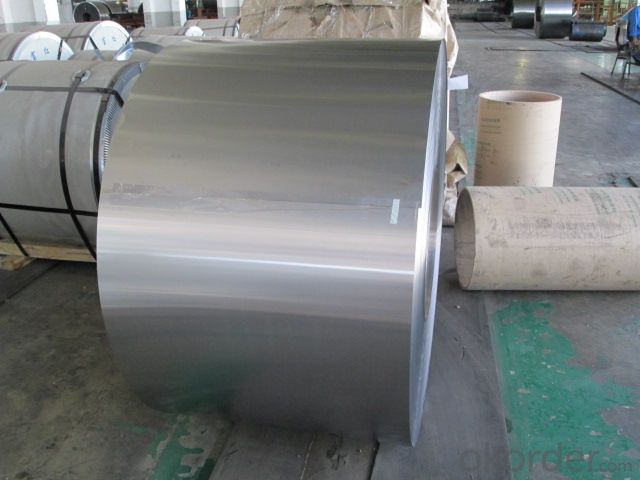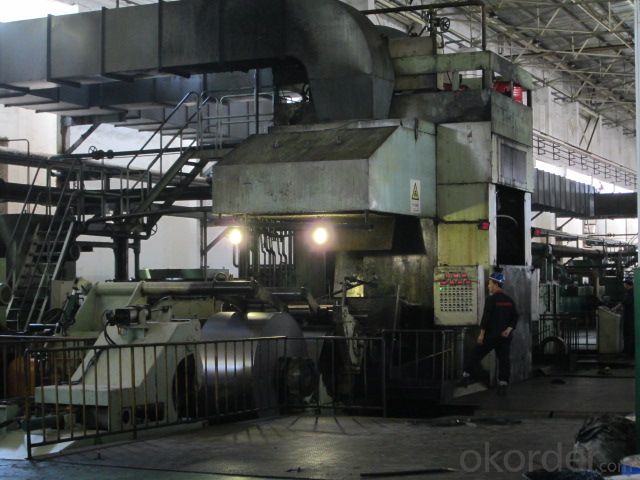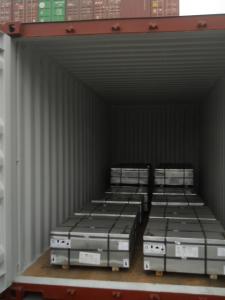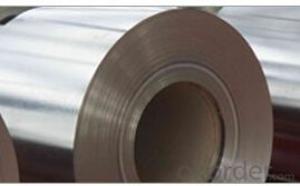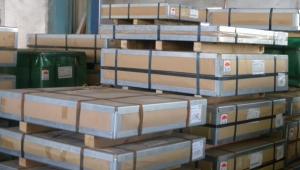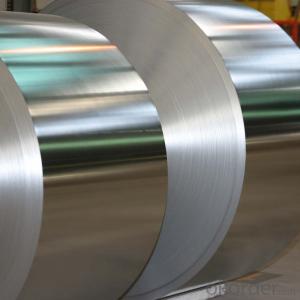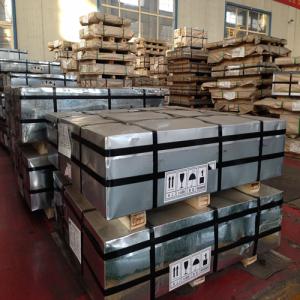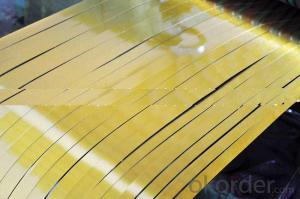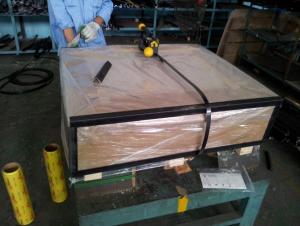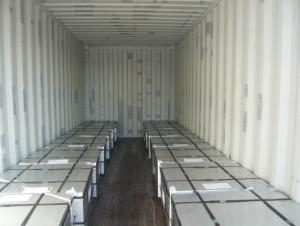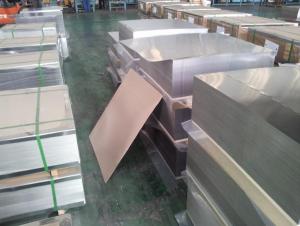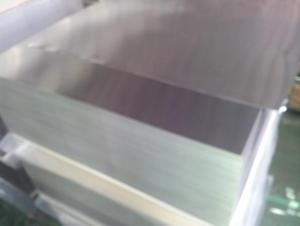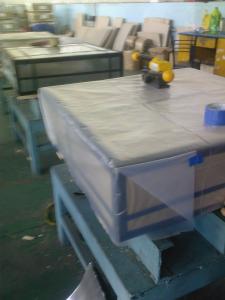Tinplate Sheets for Chemical Cans Use with Strips
- Loading Port:
- Shanghai
- Payment Terms:
- TT or LC
- Min Order Qty:
- 25 m.t.
- Supply Capability:
- 1000 m.t./month
OKorder Service Pledge
OKorder Financial Service
You Might Also Like
1.Structure of Tinplate Sheets for Chemical Cans Use with Strips Description
Tinplate Sheets for Food Cans Use with Strips is one of the metal packing materials, which is widely used for making painting cans ,chemical package cans , electrical cable ,battery and metal printing etc.
2. Main Features of the Tinplate Sheets for Chemical Cans Use with Strips
Steady and high quality
Fast shipment
Good experience for export work
For the surface, Plate uniform in thickness,uniform and smooth tin coating, without flaws,rusts,scratch,wave,nick of tin coating etc.
3.Tinplate Sheets for Chemical Cans Use with Strips Images
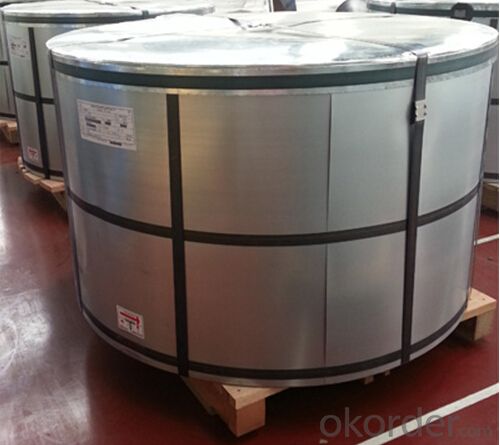
4. Tinplate Sheets for Chemical Cans Use with Strips Specification
Standard : GB2520-2000 ,JIS G3303
Steel type : SPCC
Coating : 2.8/2.8
Surface: Bright, Stone ,
Thickness:0.18
Width :600MM~1000MM
Temper : T1~T5
Package: tinplate wrapped completely with an inner cover of plastic or waterproof papers with vorners protected with metal angels.
5.FAQ of Tinplate Sheets for Chemical Cans Use with Strips
A. What is the package of tinplate? (Referred as below)
For sheets, thin plastic film + rust-proof paper + metallic cover + metallic angles+ steel band strips + fumigated wooden pallet.
For coil, thin plastic film + rust proof paper + metallic cover + steel band strips + fumigated wooden pallet
B. The surface of tinplate could you supply?
Stone finish, Bright finish, Matte finish, Silver finish
C. What quantity is the minimum order of tinplate?
Usually, the minimum quantity is 25MT. For special case, consult with us.
- Q: What are the common widths of tinplate?
- The common widths of tinplate typically range from 600mm to 1,200mm.
- Q: Can tinplate be used for chemical packaging?
- Yes, tinplate can be used for chemical packaging. Tinplate is a material made from thin sheets of steel coated with tin, providing excellent resistance to corrosion and chemical reactions. It is commonly used for packaging sensitive chemicals, as it provides a protective barrier against moisture, oxygen, and other elements that could potentially degrade the chemicals. Additionally, tinplate is durable, lightweight, and recyclable, making it a suitable choice for chemical packaging.
- Q: How does tinplate contribute to the overall tamper-evident packaging?
- Tinplate contributes to the overall tamper-evident packaging by providing a strong and durable material that can be easily sealed and remains intact when tampering is attempted. Its resistance to corrosion and tampering makes it an ideal choice for ensuring the security of packaged products.
- Q: How to test the tightness of tin metal cans?
- A careful observation of empty tank tank bottom edge and welding seam has no air bubbles, where the same parts of continuous bubbles, should be judged as leakage, leakage of the recording time and vacuum degree, and make a mark in the leak site.
- Q: How does tinplate affect the overall product visibility?
- Tinplate can significantly enhance the overall product visibility due to its shiny and reflective surface. The reflective nature of tinplate allows for better light reflection, making the product more noticeable and eye-catching on store shelves. Additionally, tinplate can be easily printed upon, enabling vibrant and high-quality graphics that further attract consumer attention.
- Q: Tin cans and tin cans, which is good?
- Tin is tin plate, of course tin tin is tin pot. Another name is tin plate. For example, you ask tomatoes and tomatoes which taste good, as the brothers in Pohang say, the same thing is different.
- Q: What are the main differences between tinplate and tin-free steel?
- The main differences between tinplate and tin-free steel lie in their composition and properties. Tinplate is a thin steel sheet coated with a layer of tin, which provides excellent corrosion resistance and protects the steel from rusting. Tin-free steel, on the other hand, is a steel sheet that does not have a tin coating but is instead coated with a layer of other metals like chromium or chromium oxide. While tinplate offers superior protection against corrosion, tin-free steel is known for its enhanced strength and durability. Additionally, tinplate is often used for food and beverage packaging due to its non-reactive nature, while tin-free steel finds applications in automotive parts, cans, and other industrial uses.
- Q: How does tinplate affect the environment?
- Tinplate can have both positive and negative impacts on the environment. On one hand, tinplate is a highly recyclable material, which helps reduce waste and conserve resources. It can be recycled multiple times without losing its quality, making it an environmentally friendly choice. On the other hand, the production of tinplate involves energy-intensive processes and can result in the emission of greenhouse gases. Additionally, the mining of tin, one of the main components of tinplate, can have adverse effects on ecosystems and local communities. Therefore, while tinplate offers recycling benefits, its production and sourcing should be done responsibly to minimize its environmental impact.
- Q: How is tinplate coated with organic materials?
- Tinplate is typically coated with organic materials through a process called lacquering or varnishing. The organic coating, usually a resin-based material, is applied to the tinplate surface in a controlled manner, forming a protective layer that prevents corrosion, enhances durability, and provides a decorative finish.
- Q: How is tinplate corrosion resistant?
- Tinplate is corrosion resistant due to the thin layer of tin coating that is applied to the surface of the steel. This tin layer acts as a barrier, preventing oxygen and moisture from coming into direct contact with the steel, which helps to inhibit the formation of rust and corrosion.
Send your message to us
Tinplate Sheets for Chemical Cans Use with Strips
- Loading Port:
- Shanghai
- Payment Terms:
- TT or LC
- Min Order Qty:
- 25 m.t.
- Supply Capability:
- 1000 m.t./month
OKorder Service Pledge
OKorder Financial Service
Similar products
Hot products
Hot Searches
Related keywords
